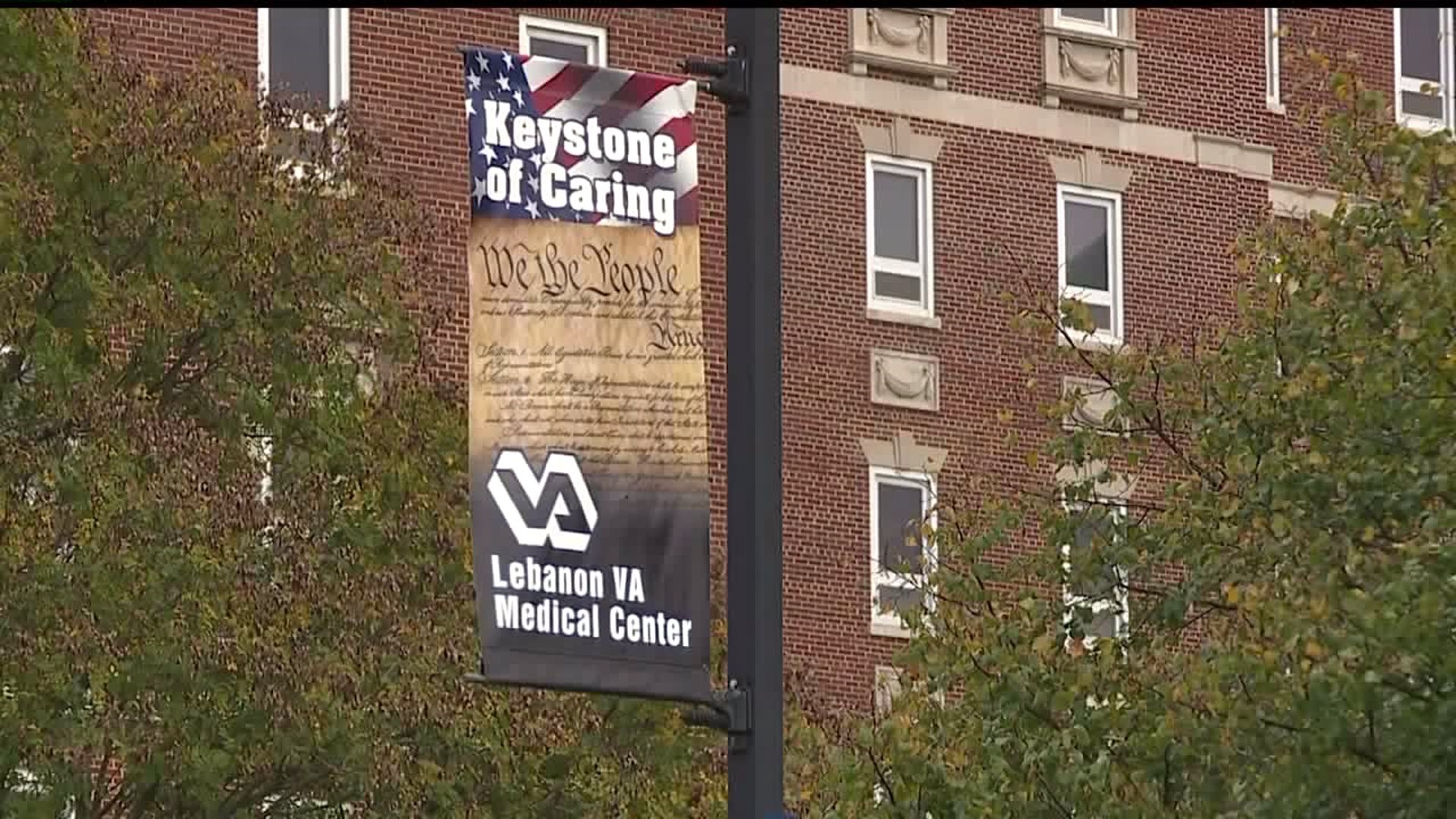SOUTH LEBANON TOWNSHIP, LEBANON COUNTY, Pa. -- A local veteran living with pain tells us he's not happy with the VA's prescription to fight it.
The men and women who served our country are not immune from the opioid crisis, and the veterans administration is trying to balance treating pain while preventing addiction.
Veteran Pat Gast said "it's coming at you 100 miles an hour. Every day that you go through withdrawal, and you go through this, it brings back flashbacks, like I'm reliving it like as if it was yesterday."
Gast is a veteran who served our country overseas during the vietnam war. He came home with metal rods in his wrist, leg, and hip. Now he only wants one more thing from his country in return.
"Put me back on my medication, and leave this old man alone. Like you need your medication in order to walk. When I walk with a bad leg, I kind of need my medication," Gast said.
Gast seeks treatment close to home at a local Veterans Administration clinic in York County. He’s frustrated with how doctors manage his pain from his wartime injuries and PTSD. It's what often drives him to make an hour-long road trip to the VA's main medical center in Lebanon County, armed with questions for administrators about relieving his pain.
FOX 43 News also went to the VA to find him answers. Although administrators say legally they can't speak about pat's medical treatment to support or deny his claims, FOX 43 News was able to meet with his doctor to hear how the va treats other vets like Gast.
Lebanon VA Medical Center pain medicine director Dr. Gregory Kahn-Arthur said "it's not easy. I tell all of my patients as I decrease their opiates, this is going to be the hardest part, but it is a necessary piece in ensuring your safety and improving outcomes when it comes to chronic pain."
"I had to find out whether this was addiction or pain. Well, I went 15 days without my medication, and I know damn well this is pain," Gast said.
The Comprehensive Addiction and Recovery Act of 2016 was enacted to combat the nationwide opioid epidemic. Dr. Kahn-Arthur tells us the veterans administration is joining the fight by weaning vets off opioids and treating their pain with more than just drugs.
"There is actually very good evidence that psycho-therapeutic modalities, such as cognitive behavioral therapy, acceptance and commitment therapy, actually do work to decrease pain and improve function, which is the goal," Dr. Kahn-Arthur said.
While Gast wants doctors to put him back on his full dosage, Desert Storm veteran Doug Stephens likes that the VA is working on alternatives to opioids.
"Swim therapy, or occupational therapy, or other types of things, that exercises them that's gets their mind and body well, in any combination, I think is really good," Stephens said.
Although he's open to new ideas, even Doug was skeptical at first about trying accupuncture as a new treatment method.
"After going through it, it really worked well. It actually managed the pain for months. I was able to do more, and spend time with my kids. I lifted my grandchild up, andI think it was great, to be able to have that opportunity, rather than just more and more pills," Stephens said.
"I'd love to never take pain medication, to never have to take it, but I've come to the realization that I'm not like the other people. Maybe I have a disability that I have to take it," Gast said.
Some vets say there are complications in seeking pain relief. The Lebanon VA Medical Center in Lebanon County serves 174,000 vets in nine central Pennsylvania counties, but there's only one pain mediation specialist to serve its six clinics, Dr. Kahn-Arthur.
"They don't have enough staff to handle this. I think if they had more staff to handle it, the primary docs can feel comfortable that the pain management is being managed correctly, and not just 'here's another pill, walk away,'" Stephens said.
"To put it all on one doctor, he must have, we said to ourselves, he must have a thousand patients. How do you get everybody north, everybody left, everybody east, everybody west? Holy moly," Gast said.
"I'm not just one person, here in pain management at the Lebanon VA. We practice interdisciplinary care. So, I do a lot of the initial consultations for the medical aspect of pain management, but I also have clinical psychologists that I work with. I have physiatrists, physical therapists, occupational therapists," Dr. Kahn-Arthur said.
Meanwhile, Dr. Kahn-Arthur said he understands the frustration that comes with taking away a patient's medication that they've become used to using to relieve their pain.
"I'm a veteran myself. I try to identify with these guys, and talk to them about their service, about their life in general. Really get to know them, so that they feel like I'm not just that doctor that they have to go see, but i'm somebody they can confide in, and be honest with," Dr. Kahn-Arthur said.
"I think if you communicate with people, let them know what they're expecting, I think they might be more open to doing something different. It's the unknown that everybody is afraid of," Stephens said.
Still, Gast said he's not getting all of his answers from the VA.
"Me and God will get this straight, and God won't let me die. Like, he's keeping me going. God is, not the VA," Gast said.
Some may wonder if medical marijuana may be another option to help vets deal with pain, but as long as medical marijuana remains illegal federally, it will not be prescribed by doctors at the VA.

